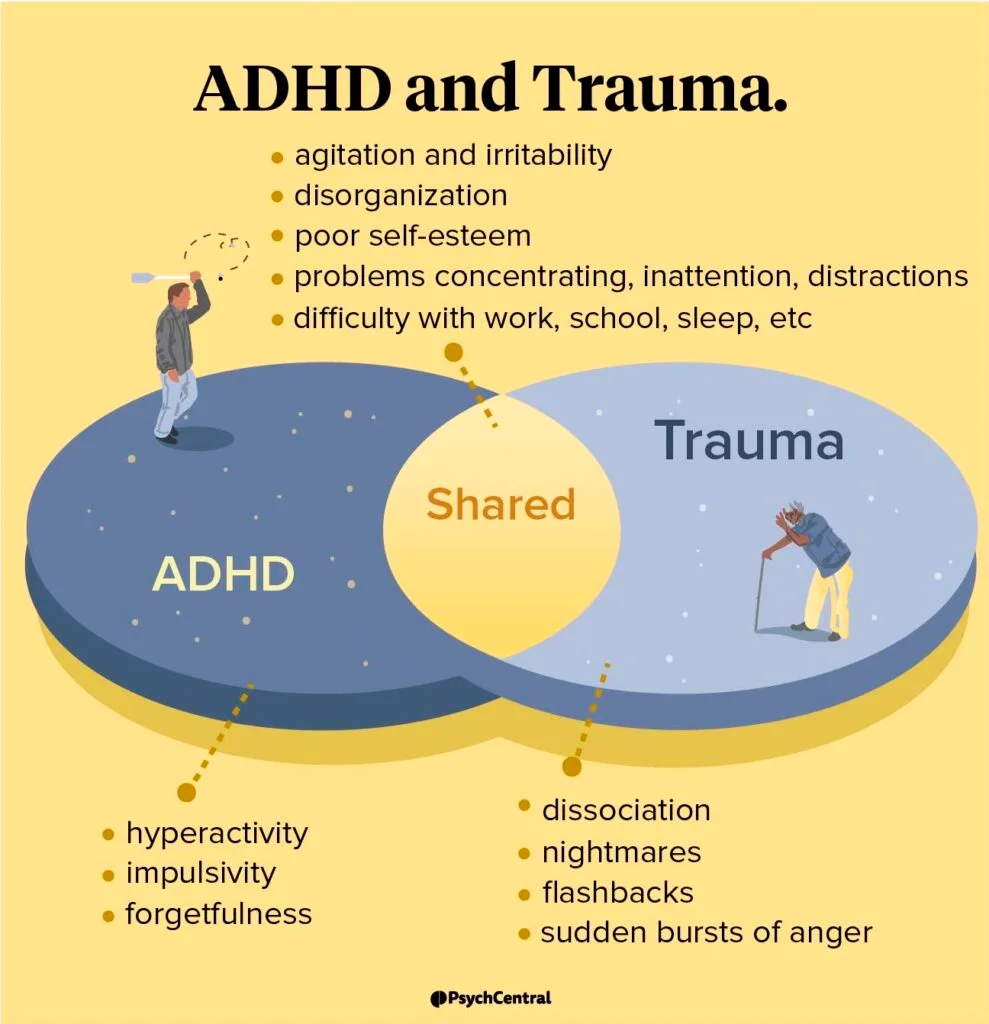Attention-Deficit/Hyperactivity Disorder (ADHD) is a mental disorder that presents in early childhood and is characterized by difficulty maintaining focus, hyperactivity, and impulsivity. It is one of the most commonly diagnosed mental disorders amongst children and adolescents, with estimates suggesting that 5-7% of school aged children have been diagnosed with ADHD.
While the cause for ADHD is still largely unknown, research suggests it may be caused by genetic factors as well as environmental influences such as poor nutrition or exposure to toxins. Children experiencing trauma or attachment issues are also at an increased risk for developing ADHD symptoms; however further research needs to be conducted to better understand how these experiences interact with each other and contribute to the development of this disorder.
There are three primary types of ADHD: predominantly inattentive type (difficulty focusing), predominantly hyperactive-impulsive type (excessive movement and restlessness), and combined type (a combination of both). Symptoms can vary from person to person but typically include problems paying attention, difficulties regulating emotions, impulsive behavior, disorganization even when given clear instructions or direction on tasks/assignments etc., poor executive functioning skills such as goal setting & time management etc., low frustration tolerance leading to outbursts when faced with challenging tasks/situations etc., difficulty staying still for long periods of time etc.
The diagnosis process usually involves ruling out any physical causes for the behavior through medical exams & tests before obtaining a psychological assessment which includes interviews & behavioral observations done by trained professionals such as psychologists or psychiatrists who will then determine if there’s evidence enough based on criteria set forth in DSM V manual that would support an official diagnosis being made. Once a diagnosis has been made treatment plans will typically involve medication alongside counseling sessions aimed at helping individuals learn coping mechanisms so they can manage their symptoms more effectively throughout their day-to-day life activities..
In addition to traditional treatments like medications & psychotherapy other interventions used increasingly nowadays include parent training programs geared towards helping parents gain better insight into what triggers certain behaviors so they can create positive environments not only at home but also within school settings where kids spend most part of their day interacting amongst peers without feeling overwhelmed due too many external stimuli present around them thus allowing them reach optimal performance levels academically speaking while having fun being social all same time! Finally lifestyle changes like getting regular exercise & eating healthy foods have proven helpful over years improving overall quality life those affected by this condition!


